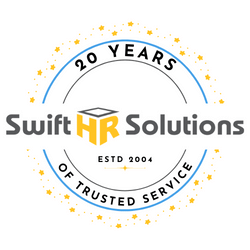Is your culture right for a hybrid environment?
The days of the traditional in-office 9-5 job are over, and everyone you know has a strong opinion about its demise. Despite high profile companies calling employees back into the office, most executives expect their percentage of hybrid and remote workers will grow in the next 5 years (1). Employees love the increased flexibility of these models, but some leaders feel collaboration and innovation are suffering without having people physically together. If your team is feeling disconnected due to remote work, don’t be too quick to blame the physical distance. You may have a culture problem to address.
Is your culture supporting people as they work remotely? Is it helping people grow within the company even if they don’t have face-time with leadership? Startups used to make office perks a key part of their identity. Now more than ever your culture needs to have people at its core. Resetting to thrive no matter the physical location of your employees requires a deliberate approach. Here are some things to keep in mind when making sure your company culture is ready to grow in a hybrid/ remote work environment:
Clear Policies: The companies who are seeing the lowest morale among their employees are the ones who are making some employees come back to the office but not others. This breeds resentment amongst those who have returned to the office. Develop and communicate clear policies around remote work that outlines expectations, guidelines, and procedures.
Virtual Onboarding: Create a robust virtual onboarding to get people started the right way and set the tone for their experience with your company. Especially important as Gen Z makes up more of the workforce, is helping facilitate peer connections, communicating your values, and providing clear career path information.
Virtual Training and Development: Employee development is one of the best ways to engage and retain your best people. When you have the whole team go through training together, they will have a common language and understanding of what your company expects from its leaders. You can all work toward the goal of becoming better communicators, giving better feedback and coaching others for success.
Trust and Flexibility: Shift from tracking how many hours employees work, to measuring the results that they deliver. Trust your employees to manage their time effectively and recognize that people will have different schedules than each other. Ensure that performance reviews and goal setting are clear transparent so everyone knows what is expected from them. Frequent and efficient one-on-one meetings with agendas will be critical so that projects go smoothly and there are no surprises in employee evaluations.
In-person collaboration: If you have a fully remote team, one way to spark creativity and strengthen connections is to bring the team together. This can be once a quarter, once a year, or during designated “core weeks” as Smuckers has adopted. Strategic planning time is a popular reason to bring everyone together in the same room as you make your plans for the year ahead. One SwiftHR Solutions Client brings their entire team together for one week every quarter for strategic planning, product brainstorming, engineering prototyping, sales strategy discussions and team building. These collaboration opportunities help this small team form stronger connections and enhance team dynamics.
Technology and Infrastructure: Invest now in the technology needed to support remote work. Think about messaging tools like Slack or that go beyond emails and phone calls and better simulate quick check-ins. Also consider project management software that helps keep everyone on track. When you hire someone new, make sure they have the hardware they need for success.
Transitioning your culture to be strong and resilient in the age of remote work takes time and will require continuous improvement. You’ll need to review and adapt your policies and be open to making changes as the world evolves. Prioritize communication, trust, and the well-being of your workforce and you can create a culture that will thrive no matter when or where your team is working.
HR plays a crucial role in shaping and strengthening your company culture. Your head of HR should own employee engagement, training and development, onboarding, performance management and recruiting for cultural fit. They align your organizational practices with the culture and values you want to achieve.
(1) https://hbr.org/2023/08/survey-remote-work-isnt-going-away-and-executives-know-it?tpcc=orgsocial_edit&utm_campaign=hbr&utm_medium=social&utm_source=linkedin

